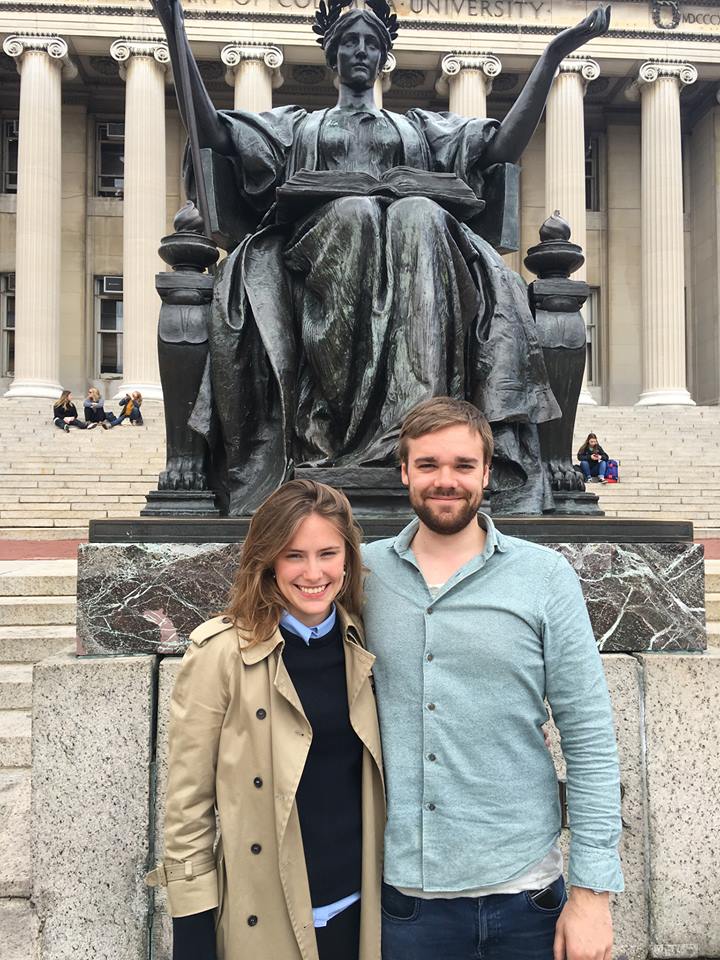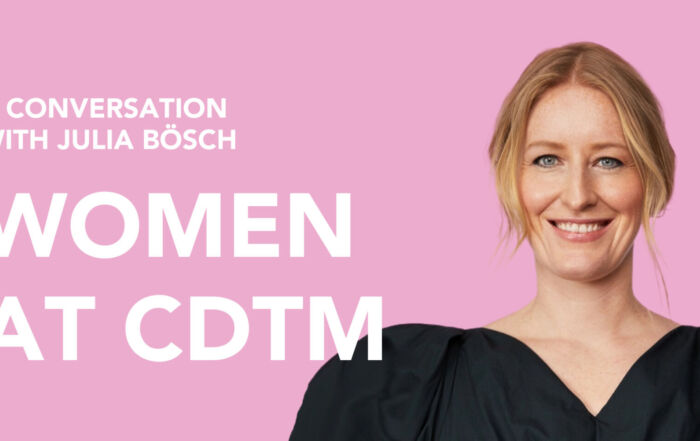For many successful years, CDTM has maintained partnership with Columbia University’s Institute for Tele-Information – CITI. This year, Centerlings Isabel Poppek and Philipp Rathjen were granted the privilege to study at one of the world’s finest institutions, and dive into the diverse research being done at CITI. Under the leadership of Professor Eli Noam, CITI shines the light of academic research on some of the most pressing and or controversial topics in the digital economy. From the challenges arising from the global privacy vs. security discussion, the immense potential harm of cyber attacks as well as the intricacies of economic anti-trust policy making in telecommunications, to the marvels of new business models emerging from Silicon Valley to Tel-Aviv. Isabel and Philipp contributed to several forthcoming publications and ongoing research, alongside the regular coursework in their respective academic fields.
While thinking about New York City brings to mind the image of towering skyscrapers of the Manhattan skyline, it is easy to overlook the immense cultural diversity the city offers, with artists, entrepreneurs and designers dominating large portions of the cityscape. And indeed, a closer look at the city’s soul reconfirms it’s reputation as a major innovation hub. It is often perceived as common knowledge that the United States fosters an entrepreneurial environment to a much greater extent than its European counterparts. Studying at Columbia makes the extent to which this is an understatement clear. It also highlights the role the university plays itself in encouraging, and providing a platform for, a start-up mentality. In part due to an uncompromising hands-on approach in teaching, students learn early to tackle problems head on and about which kind of problems they will actually face if they choose to follow the entrepreneurial route. Furthermore, a large network of graduates and guest speakers frequent university campuses to share their experiences. These kind of encounters are invaluable. Not only because they convey incredibly useful best practices and inspire ideas, but because they steadily and determinedly dismantle false notions about start-ups: disproportionate risk, impossibility of taking on market incumbents and old bulls, and possible adverse effects on one’s own career. These preconceptions are met with a hands-on mentality and a thirst for innovation.
The extent of this hands-on approach in education at Columbia reaches beyond business and technology, into even more research focused fields. As an example, the Columbia Economics department, the alma mater of numerous highly successful graduates, places great importance on the development of skills alongside the theoretical education. This is done, for example, by having students reproduce study results as a component of regular coursework. Furthermore, any academic work carried out by students during seminars or during research positions with faculty members can be published in the Columbia Economics Review. This encourages students to develop a sound proficiency in programming languages, statistical toolsets and high-quality typesetting systems for publication, while developing an eager eye for detail in academic writing and empirical work.
The success of Columbia graduates is not merely the result of the reputation of its faculty members, but also due to the university’s ability to provide students with a platform to explore their potential as well as the tools to do so. CDTM too is proud to capture this spirit of innovation in its teaching and research. Find more information about CDTM abroad opportunities and the degree here.
Author: Philipp Rathjen







